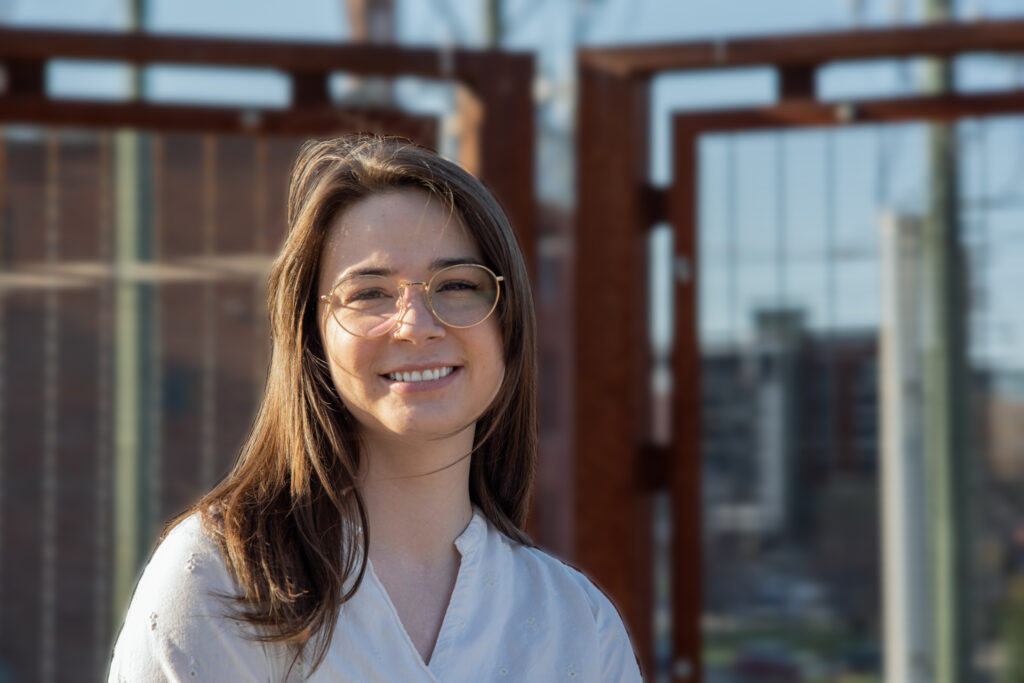March 18, 2022. Winston-Salem Journal.

With the passage of State Bill 8 in Texas and the Supreme Court’s upcoming hearing on Dobbs v. Jackson Women’s Health, reproductive health is on the minds of many Americans right now. I tried to remember my first introduction into sex ed, but all I could recall was my red-hot face and pounding heart as my fifth grade teacher explained how my body would start to work in the coming years. Come to think of it — I remember learning much more from “The Care and Keeping of You: The Body Book for Girls” published by American Girl.
This seems to be the trend across the United States: Sex ed is remembered as an embarrassing few hours rather than a learning experience. Teens learn more about their bodies and their reproductive features through their peers and the internet than the people that we pay to educate them on those topics.
This wouldn’t be much of an issue, if we weren’t in what some have deemed “the age of misinformation.” There is so much conflicting information available on the internet that it’s almost impossible to determine fact from fiction.
This problem extends well beyond internet regulations or abortion rights. Adolescents deserve a sex ed experience that gives them a good foundation of knowledge, allowing them to make well-informed decisions regarding their sexuality while minimizing the health risks.
Cases of nearly all sexually transmitted infections (STIs) are on the rise in the United States. The Centers for Disease Control and Prevention reported 38,992 cases of primary and secondary syphilis in 2019, an 11.2% increase from 2018. In this same year, young adults (aged 15-24) represented about half of all new STIs in the country. This increase in cases is particularly sad because syphilis is remarkably easy to treat with antibiotics. However, the natural course of the disease involves periods with no symptoms, leading people to not seek treatment until much later.
Furthermore, there is a wealth of information on “natural” or herbal remedies for many STIs, including syphilis, on the internet that is inaccurate. It is understandable to want to treat this at home to forgo the discomfort of going to the doctor for a sore on your genitals. However, at best, these home remedies are just unhelpful. All of them delay treatment, allowing for the potential to spread the disease. At worst, some herbal medicines have been found to be tainted with heavy metals or other medicines, causing serious illness or death.
Medically accurate sex ed courses reinforce that STIs are largely preventable and teach teens the risks and responsibilities that come with being sexually active.
However, the internet can be an amazing resource when used responsibly. Content creators across the internet sought to educate their followers by pointing out the body mass index (BMI) restrictions for use of Plan B or similar emergency contraceptive pills. While the information on the box states that Plan B is not effective at preventing pregnancy in people with BMIs greater than 30 kg/m2, many young adults thought that these pills were a fail-safe option for not getting pregnant after engaging in unprotected sex. The key to getting teens to engage in safe-sex practices is to teach them which resources to turn to when they need to check the facts so they can be critical of the information they receive.
As of 2009, North Carolina mandates that students in seventh through ninth grade receive medically accurate sex education with instruction on abstinence, contraception, STI prevention and sexual assault through the Healthy Youth Act. Though it’s a step in the right direction, many students across the state fail to receive any information beyond “abstinence only” sex ed. Why teach students about STIs when they’re never going to have sex?
We can’t stop teens from having sex. However, we can decrease rates of sexually transmitted infections and teen pregnancy by ensuring that teenagers have access to medically accurate information to make the best decisions for their bodies.
Callie Ollish is a medical student at Wake Forest School of Medicine and a 2021-22 North Carolina Albert Schweitzer Fellow. These are her personal opinions and do not necessarily represent the views of Wake Forest School of Medicine.
